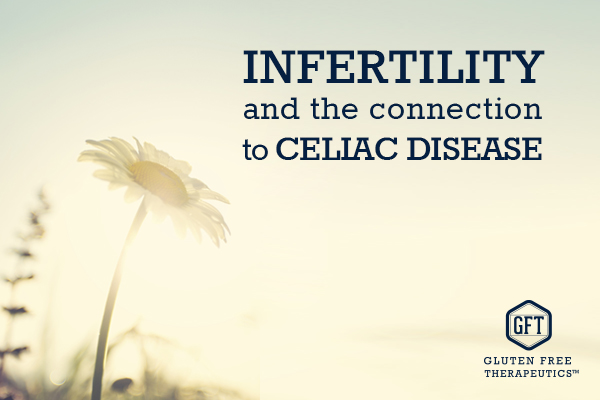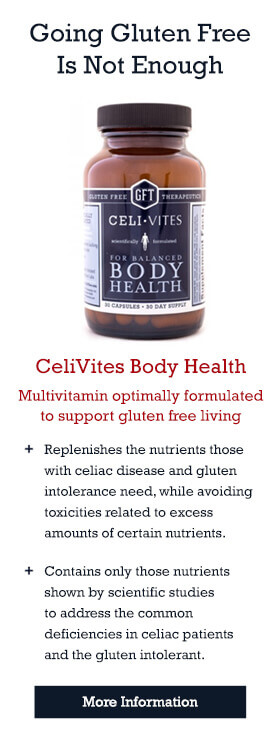
Celiac Disease and Infertility
Women with CD were six times more likely to have unexplained infertility problems
Infertility is a heartbreaking problem for the women and men who worry they may never be able to have a biological family of their own. In the U.S. alone, six percent of women are considered to be infertile, a condition defined as being unable to conceive after a year of intentionally trying to get pregnant. An additional 11 percent of women have difficulty carrying a pregnancy to term.
Considering the far-reaching effects of celiac disease and its involvement in a wide range of seemingly unrelated health issues, many studies have examined a possible relationship between celiac disease and infertility among women, and what they’ve found has been intriguing.
Data supporting an increased rate of infertility and spontaneous abortions in those with celiac disease are as follows:
- A meta-analysis from Massachusetts General Hospital, including data from nine relevant studies, found women with CD were six times more likely to have unexplained infertility problems, and the prevalence of celiac disease among women with unexplained infertility was 3.2%; which is 3 times higher than estimates of CD prevalence in the general population. Because nutritional deficiencies have been suspected as a cause of infertility in patients with celiac disease, the authors asked whether iron deficiency was present in these populations. The percentage of infertility patients with coeliac disease that also had iron deficiency was 28.5% in the 4 studies that reported iron status.
- A second study from Finland comparing 150 women with unexplained infertility with 150 control subjects, 4.1 percent of women with unexplained infertility or recurrent miscarriages were diagnosed with celiac disease. Although the study was not designed to determine a possible link between the conditions, the researchers suggested that undiagnosed celiac disease should be considered in women with unexplained infertility.
- A survey conducted by researchers in Italy evaluated 91 women with celiac disease and found they reported significantly more problems with their menstrual cycles compared to women without CD, and nearly three-quarters of CD patients who had been pregnant reported pregnancy-related problems. Among 4,070 women of childbearing age with CD, 1.2% had been hospitalized for infertility, while only 0.2% of corresponding population without CD had been hospitalized for infertility.
There is mounting evidence of an association between infertility and celiac disease. Furthermore, because inadequate nutrition is a prominent feature of CD, it is possible that nutritional deficiencies may underlie this association. Supplementation with folic acid and iron are long standing practices used to support fetal development. Getting pregnant and carrying a baby to term require optimal nutrition, from implantation of the egg to providing a hospitable environment for sperm to ensuring proper fetal development. Both celiac disease and the gluten-free diet it demands can result in significant nutritional deficiencies that can interfere with these processes.
The bottom line: If you’ve been struggling with infertility but have not yet been diagnosed with celiac disease, ask your doctor about being screened for CD. And if you have celiac disease and have also been having trouble conceiving, make sure you’re following a strictly gluten-free diet and ask your doctor about maximizing your nutrition through use of gluten-free nutritional supplements like CeliVites.
This original article is made possible by Gluten Free Therapeutics. Our mission is to educate, inform, and provide the most effective nutritional products possible to allow those with celiac disease and serious gluten intolerances to heal their bodies. CeliVites complete line of superior gluten free supplements includes multivitamin/multimineral supplements, iron supplements, and calcium supplements for people living with celiac disease. All CeliVites products are designed to help you heal, restore and rebuild your body, because going gluten free isn’t enough!
Comments ()
















I am a medical doctor . I have confronted the link with infertility and IBS in general. Pregnancy is based of immunological tolerance and CD and all food intolerance are the opposite. It is more complex than we expect for example we can’t get all the parameters about transplant tolerance during pregnancy. I was always revolted when we advice a young woman to be pregnant when first signs of rejection were appearing and it was working for a while not enough to take care of the baby for long but giving years to the young transplanted. Cd is a more complex immunnologic problem than the establishment wants to see.
Thank you for your comment. We have a PhD in immunology on staff and heartily agree that CD is a much more complex disease than is commonly recognized. We appreciate your taking the time to add to the conversation for our readers.
Hello! I want to start out saying a BIG thank you for your blog. I was receltny diagnosed with an endometriosis cyst on my right ovary, via ultrasound. I was devastated to hear that my only functioning ovary (my left fallopian tube is blocked) was in jeopardy. I was sad and confused, seeing I have never had any symptoms of endometriosis.Your blog was the first I came across when I began, franticly, scouring the Internet for help and answers. I took to your reccomendations, and started the endo diet. I cut out gluten, dairy, sugar, processed foods, and red meat. And then only free range chicken, fish, and eggs (rarely) and organic fresh fruits and vegetables. The juicing has been an awesome experience. I love the way my skin is looking I also started taking serrapeptase, fish oil, B complex, and countinued my prenatal vitamins.Well, today was my follow up (2.5 weeks after starting the diet) and I am thrilled to tell you that my 5.6 cm cyst is now 4.5 cm!!!!! I can’t believe it! I could tell right off the bat, that the cyst looked so much smaller. What an amazing thing!Thank you, thank you, thank you!!! Your information, your story has renewed my hope. I do hope that I will one day soon I’ll be able to tell you I am pregnant. Thank you again for this wonderful blog.-Chelsea
After diagnosis of CD and following a gluten-free lifestyle, how is a woman’s odds of becoming pregnant, or carrying full-term, affected?